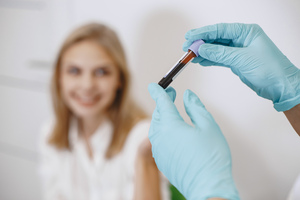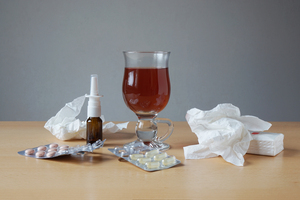Lab Tests
Getting a lab test, when medically indicated, is crucial for maintaining your health, identifying diseases in their early stage, monitoring chronic conditions, and improving your quality of life.
Types of Lab Tests
COVID Testing
$0 - 175
Learn MoreSTD Testing
$50 - 350
Learn MoreAllergy Testing
$50 - 350
Learn MoreDiabetes Testing
$30 - 175
Learn MoreDrug Testing
$100 - 200
Learn MoreThyroid Testing
$50 - 100
Learn MoreInfectious Disease Testing
Learn MoreMen’s Health Tests
Learn MoreWomen’s Health Tests
Learn MorePregnancy and Fertility Testing
Learn MoreVitamin and Nutrition Testing
Learn MoreWho should get a lab test?
Lab tests check samples of body tissues or fluids, such as blood and urine, to determine if the results are normal. According to Medline Plus, you should get a lab test if you or your child have an illness and need to know how the treatments are working and to find out if your organs are working well. Your doctor may order a lab test for the following reasons, according to Medline Plus:
- The need to compare current results to previous ones
- Routine evaluations to see if there are any changes
- To help with diagnosing an illness, develop a treatment plan, or monitor the illness
How to get a lab test
According to Quest diagnostics, there are two ways to get a lab test. You can get an order for a lab test from your doctor, or you can buy the lab test you need without your doctor. Your doctor may order a lab test as part of the treatment plan at the clinic. However, you can ask your doctor if a lab test is appropriate during a visit.
How to prepare for a lab test
Labcorp recommends that you ask your doctor the following questions to prepare for a lab test:
- What test will be done?
- Why is the test needed?
- What type of sample do you need?
- When will you get the results?
- What will be the effect of the test result on your treatment?
Biotin may potentially interfere with your test results. According to Labcorp, you should inform your doctor before the test if you take biotin or plan to do so. Some lab tests have special requirements to improve their accuracy. You may have to prepare by doing the following before the test:
- Abstaining from food or specific types of food for a few hours or overnight
- Reducing or increasing your water intake
- Stopping certain vitamins, medicines, or herbal supplements
How to prepare my child for a lab test
The National Library of Medicine (NLM) recommends the following to make your child feel calm, less anxious, and less scared about a lab test:
- Explain what will be done. Let your child know why the test is necessary and how the staff will collect the sample. Use age-appropriate language and reassure your child of your presence throughout the procedure.
- Reassure your child while being truthful. Don’t misinform your child by saying there will be no pain when they may feel a prick or discomfort. You can tell them the prick or pain will be brief.
- Practice doing the test at home. You can have your young child practice the test on their doll or soft toy.
- Practice breathing and relaxing techniques. You can teach your child to slowly count to ten or think happy thoughts during the test.
- Schedule the test at an appropriate time. Make the appointment at a time when your child is unlikely to be hungry or tired. You can feed your child before a blood test to prevent them from becoming lightheaded. You can also bring a snack to eat after the test if your child has to fast.
- Offer lots of water. Unless the test requires fluid restrictions, you should encourage your child to drink plenty of water before the test. Hydration will make a blood draw and urine test easier.
- Provide a distraction: You may bring your child’s favorite book, a form of entertainment, or a toy to distract them during the test.
- Provide support. Ask the healthcare professional if you can hold hands with your child during the test. During the test, you can provide gentle physical contact or speak calmly with a low voice. If your child is young enough, you may ask to hold them or let them see your face throughout the test.
- Plan to reward your child after the test. Let your child know they will be rewarded with a treat or a fun activity after the procedure. The thought of the reward can distract your child and encourage them to cooperate during the test.
What to expect during a lab test
You can expect to provide a small sample of your body fluid, such as urine, blood, stool, saliva, or semen, during a lab test. The method of obtaining samples for a lab test varies based on the type of test. You can usually expect a healthcare professional to collect a blood, nasal, or throat specimen. You can expect to provide urine, fecal, or a sputum sample.
What to expect for a blood test
During the blood test, you can expect a phlebotomist, a healthcare professional who draws blood will use a syringe to take a blood sample from a vein in your arm. According to the National Library of Medicine (NLM), the phlebotomist will identify you or your child first and then collect the blood into an appropriately labeled container. You may feel the prick of the needle during the blood.
What to expect for a nasal swab
Throat and nasal swabs are collected under good lighting with direct visibility. You can expect to get the sample taken while sitting up with your head slightly tilted in front of the light source. According to the NLM, the healthcare professional will gently insert the swab in the nose or throat and rotate it frequently, and let it stay there for 10 to 15 seconds before removing the swab. You can expect slight discomfort from the swab in your nose or throat, but there should be no bleeding or bruises. The provider will place the swab in the other nostril and repeat the swab.
What to expect for a throat swab
According to the NLM, during the throat culture, the healthcare professional will:
- Ask your child to bend their head backward with their mouth wide open.
- Press your child’s tongue down using a tongue depressor
- Take samples from the back of your child’s throat using a special swab
The throat sample may cause your child to gag. According to the NLM, there is no pain from the throat swab. Tell your child what to expect from the procedure and reassure them that the discomfort should be brief.
What to expect for a fecal test
According to the NLM, you will be asked to provide a stool sample for a fecal test. You will receive a clean container with a tight cover and will be expected to place the stool sample in the container. The fecal test is typically non-invasive,
What to expect during a urine test
You can expect to collect the urine sample yourself and provide it to the lab. A healthcare professional will provide instructions on how to collect an uncontaminated mid-stream urine sample. You will be given a sterile container for collecting the urine sample. A urine test may be painful if your child has a rash or an infection. The NLM recommends the following tips to make the urine test easier for your child:
- Clean your child’s genital area, let them urinate in the toilet, move the collection container under the urine stream and get an ounce or two of urine.
- Practice urine collection at home, encouraging your child to urinate, stop and urinate again to get a clean catch.
- Encourage your child to drink more water but not urinate before the lab test to make urination easier.
- Turn the tap on. Your child may start urinating when they hear the sound of water.
Find Lab Tests near you
- Alabama
- Alaska
- Arizona
- Arkansas
- California
- Colorado
- Connecticut
- Delaware
- Florida
- Georgia
- Hawaii
- Idaho
- Illinois
- Indiana
- Iowa
- Kansas
- Kentucky
- Louisiana
- Maine
- Maryland
- Massachusetts
- Michigan
- Minnesota
- Mississippi
- Missouri
- Montana
- Nebraska
- Nevada
- New Hampshire
- New Jersey
- New Mexico
- New York
- North Carolina
- North Dakota
- Ohio
- Oklahoma
- Oregon
- Pennsylvania
- Rhode Island
- South Carolina
- South Dakota
- Tennessee
- Texas
- Utah
- Vermont
- Virginia
- Washington
- Washington DC
- West Virginia
- Wisconsin
- Wyoming
Lab Tests FAQs
When can I expect to receive the results of the lab test?
You can typically expect the lab to finish the test in a few days. Labcorp recommends contacting your doctor’s office to see if the results are ready.
What happens after you receive the results from the blood test?
Your doctor will interpret the results, determine the next steps, and discuss the findings and plan with you. The next steps may include changing your diet or medication, or performing additional tests.
How will the provider collect a sample of my child’s blood?
The healthcare provider will insert a small needle in a vein and collect a small amount of blood into a vial or test tube, according to Medline Plus. The fingerstick sample is obtained by poking the tip of your child’s finger. A heel stick test involves pricking your infant’s heel with a small needle.
What should I do if the lab test results are abnormal?
You can call your doctor if the lab test results are abnormal and schedule an appointment. The doctor will review the results and develop a plan of care based on the results.
How can I find a lab testing center near me?
Solv has strict sourcing guidelines and relies on peer-reviewed studies, academic research institutions, and medical associations. We avoid using tertiary references.
Everyday Healthcare, Simplified
Expert advice to help you live your best life

 LinkedIn
LinkedIn






